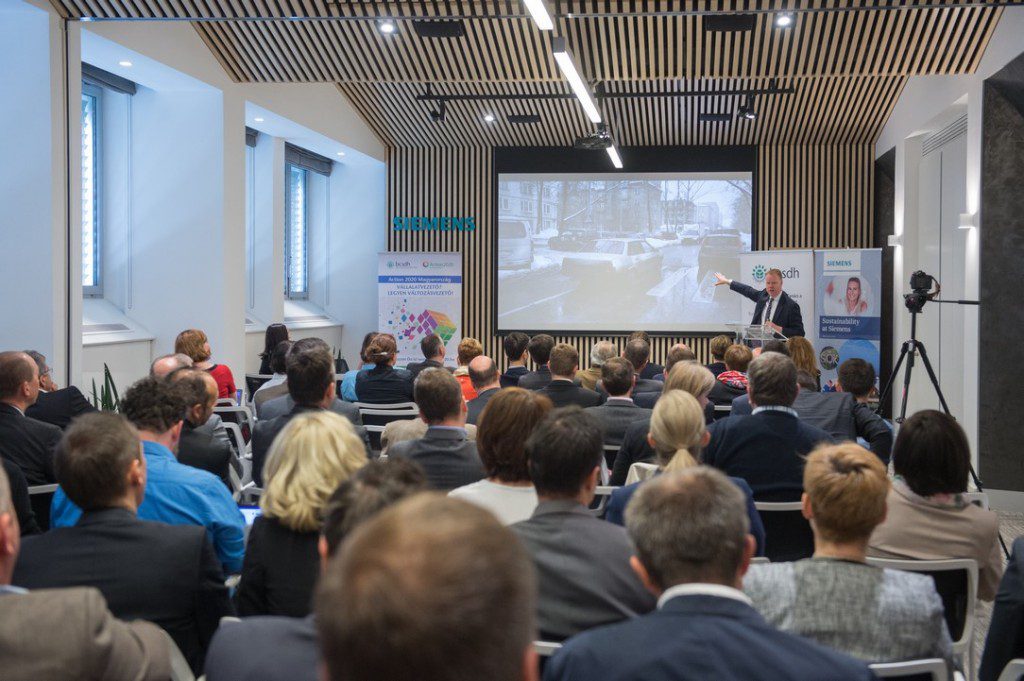“By 2025 most cities will have committed to over 50% CO2 reduction.”
“This is less than 10 years so we need to invest today.” – pointed out Martin Powell at the Action 2020 Hungary Forum held by BCSDH May 11, 2016.
Martin Powell, Global Head of Urban Development Siemens and previously the Mayoral Advisor on the Environment for the current Mayor of London, held a sensational introductory speech at the Action 2020 Forum of the Business Council for Sustainable Development Hungary (BCSDH). Siemens, a leading company in sustainability, hosted the event at which company leaders and professionals participated in lectures and workshops which were designed to initiate real steps down the path of creating a low-carbon-emission economy.
“Cities are unique and they all behave very differently. We have to design our infrastructure to address this uniqueness” – explained Martin Powell, adding that “Cities have a responsibility to the life and the dreams of its citizens. We must innovate to decouple growth from environmental impact to protect all people looking to build their life in the city.”
Cities must find their own intelligent approaches and solutions in a digital world. “The Smart City is the place that uses technology to manage resources more efficiently for the benefit of the citizen and society at large. The Digital City will harmonize the flow of water, energy, transport and people, maximizing choice and minimizing disruption. It will pave the way for a safer, more affordable and low carbon future.” – pointed out Martin Powell, highlighting that the Digital City should not increase unemployment, but – according to some calculations – may create ten new jobs for each one that is lost.
Another inspiring speech at the Action 2020 Hungary Forum was held by Dr. Gábor Bartus, Secretary General of the National Council for Sustainable Development, who set out a 10-point list of the current status and trends in the low-carbon-emission economy in relation to the macro environment, explaining that business solutions should be developed within this frame. Dr. Bartus pointed out that it is no longer a question whether we are following this path or not, as we are already on it, but there are numerous challenges to be faced. The consumption of natural capital is rapidly increasing and is forecasted to reach an additional 30% by 2030. “As the changes needed are beyond political cycles, the business and civil world may be the driving force of sustainability, where the most innovative solutions may be born.” – he added.
Following the historically important Paris Climate Agreement in December, climate change is again the focal point of the Action 2020 Hungary program.
“New solutions, models and at times radical changes are needed in order to meet climate change goals. The role of the business sector cannot be disputed, and increasing its positive impact is our common responsibility.” – stated Attila Chikán Jr., President of the BCSDH, raising attention to the role of the business sector. The main aim of the Action 2020 Hungary Forum is exactly this: to initiate a collaborative approach and joint effort from the business sector in order to make a real difference. Over 50 companies have already joined the program.
You can find the photos here.
Read more about Martin Powell’s lecture.



Leave a Reply
Want to join the discussion?Feel free to contribute!